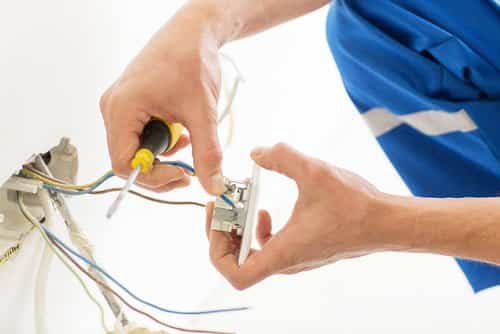Thank goodness for extension cords. When you need extra footage to power a lamp, outdoor radio or lawn and garden equipment, this trusty product is there to make the job easier! Although they are convenient, extension cords are too often misused and abused by homeowners as well as some inexperienced residential electrical contractors.
These cords are not meant to be permanent replacements, nor should you leave them running for long periods of time. This applies regardless of the wire's thickness (gauge) and safety rating. Remember, no plug-in device has the equivalent level of protection as your home's main electrical system. With repeated use, the condition of these cords can become progressively worse, despite the quality of their construction. Our Atlanta technicians wish to pass on these tips from The Electrical Safety Foundation International (ESFI) to help you use extension cords safely and correctly.
Proper Electric Cord Use
Never apply a higher power load than the cord is rated to handle, and make sure the line is run on dry ground. (Water, snow and ice should never come into contact with the wire). An extension cord is a temporary solution, so for no reason should it be used in a permanent operating capacity. Given the heat that is generated by the current flowing through the cord, keep it uncovered at all times. You want to make sure the heat can easily dissipate, otherwise you are inevitably creating an environment prone to fire hazards.
Multiple high-load devices, such as appliances, should be powered via separate cords. Attaching a multi-prong extension to another extension cord is foolhardy and highly dangerous, so make the smart move and buy an additional line. The fact that you would even need to do this means your residential electrical service system is ill-equipped to meet your needs, so contact our Atlanta electrical contractors to discuss a more long-term solution.
Room additions and other large renovation projects understandably need an alternative short-term power supply, so the installation of an upgraded control panel by a licensed Atlanta technician should be in order. For obvious reasons, an extension cord that demonstrates clear signs of wear and tear (e.g. frayed ends, exposed wiring, etc.) should be disposed and never made live. Failure to adhere to these safety standards can result in serious injury or death.
Image Courtesy of: Creative Commons

